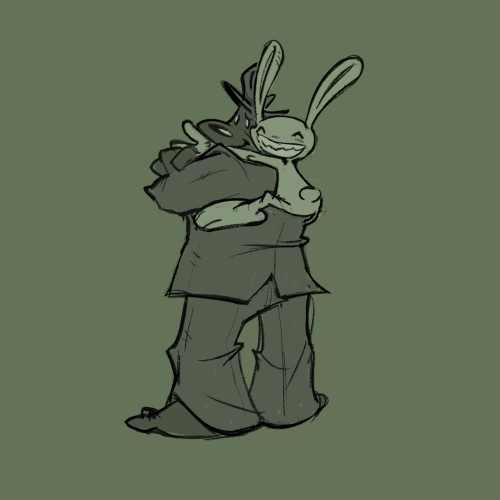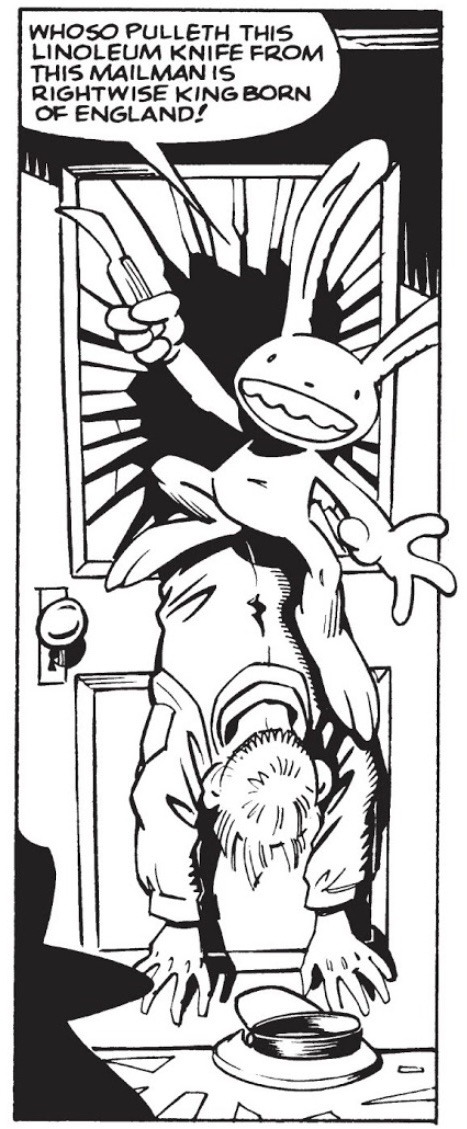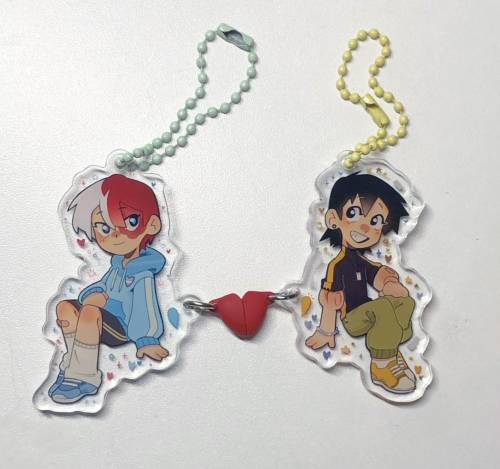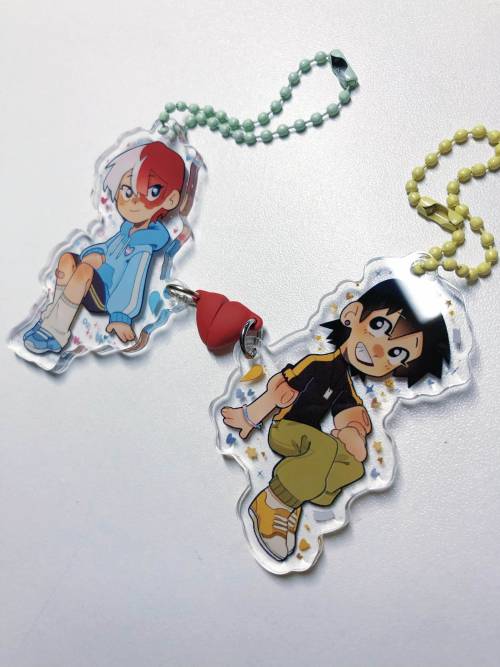:p




:p
More Posts from Pfm019 and Others



get goofy doodle laser beam blast BOOM
How to Make Your Writing Less Stiff Part 3
Crazy how one impulsive post has quickly outshined every other post I have made on this blog. Anyway here’s more to consider. Once again, I am recirculating tried-and-true writing advice that shouldn’t have to compromise your author voice and isn’t always applicable when the narrative demands otherwise.
Part 1
Part 2
1. Eliminating to-be verbs (passive voice)
Am/is/are/was/were are another type of filler that doesn’t add anything to your sentences.
There were fireworks in the sky tonight. /// Fireworks glittered in the sky tonight.
My cat was chirping at the lights on the ceiling. /// My cat chirped at the lights on the ceiling.
She was standing /// She stood
He was running /// He ran
Also applicable in present tense, of which I’ve been stuck writing lately.
There are two fish-net goals on either end of the improvised field. /// Two fish-net goals mark either end of the improvised field.
For once, it’s a cloudless night. /// For once, the stars shine clear.
Sometimes the sentence needs a little finagling to remove the bad verb and sometimes you can let a couple remain if it sounds better with the cadence or syntax. Generally, they’re not necessary and you won’t realize how strange it looks until you go back and delete them (it also helps shave off your word count).
Sometimes the to-be verb is necessary. You're writing in past-tense and must convey that.
He was running out of time does not have the same meaning as He ran out of time, and are not interchangeable. You'd have to change the entire sentence to something probably a lot wordier to escape the 'was'. To-be verbs are not the end of the world.
2. Putting character descriptors in the wrong place
I made a post already about motivated exposition, specifically about character descriptions and the mirror trope, saying character details in the wrong place can look odd and screw with the flow of the paragraph, especially if you throw in too many.
She ties her long, curly, brown tresses up in a messy bun. /// She ties her curls up in a messy brown bun. (bonus alliteration too)
Generally, I see this most often with hair, a terrible rule of threes. Eyes less so, but eyes have their own issue. Eye color gets repeated at an exhausting frequency. Whatever you have in your manuscript, you could probably delete 30-40% of the reminders that the love interest has baby blues and readers would be happy, especially if you use the same metaphor over and over again, like gemstones.
He rolled his bright, emerald eyes. /// He rolled his eyes, a vibrant green in the lamplight.
To me, one reads like you want to get the character description out as fast as possible, so the hand of the author comes in to wave and stop the story to give you the details. Fixing it, my way or another way, stands out less as exposition, which is what character descriptions boil down to—something the audience needs to know to appreciate and/or understand the story.
3. Lacking flow between sentences
Much like sentences that are all about the same length with little variety in syntax, sentences that follow each other like a grocery list or instruction manual instead of a proper narrative are difficult to find gripping.
Jack gets out a stock pot from the cupboard. He fills it with the tap and sets it on the stove. Then, he grabs russet potatoes and butter from the fridge. He leaves the butter out to soften, and sets the pot to boil. He then adds salt to the water.
From the cupboard, Jack drags a hefty stockpot. He fills it with the tap, adds salt to taste, and sets it on the stove.
Russet potatoes or yukon gold? Jack drums his fingers on the fridge door in thought. Russet—that’s what the recipe calls for. He tosses the bag on the counter and the butter beside it to soften.
This is just one version of a possible edit to the first paragraph, not the end-all, be-all perfect reconstruction. It’s not just about having transitions, like ‘then’, it’s about how one sentence flows into the next, and you can accomplish better flow in many different ways.
4. Getting too specific with movement.
I don’t see this super often, but when it happens, it tends to be pretty bad. I think it happens because writers feel the need to overcompensate and over-clarify on what’s happening. Remember: The more specific you get, the more your readers are going to wonder what’s so important about these details. This is fiction, so every detail matters.
A ridiculous example:
Jack walks over to his closet. He kneels down at the shoe rack and tugs his running shoes free. He walks back to his desk chair, sits down, and ties the laces.
Unless tying his shoes is a monumental achievement for this character, all readers would need is:
Jack shoves on his running shoes.
*quick note: Do not add "down" after the following: Kneels, stoops, crouches, squats. The "down" is already implied in the verb.
This also happens with multiple movements in succession.
Beth enters the room and steps on her shoelace, nearly causing her to trip. She kneels and ties her shoes. She stands upright and keeps moving.
Or
Beth walks in and nearly trips over her shoelace. She sighs, reties it, and keeps moving.
Even then, unless Beth is a chronically clumsy character or this near-trip is a side effect of her being late or tired (i.e. meaningful), tripping over a shoelace is kind of boring if it does nothing for her character. Miles Morales’ untied shoelaces are thematically part of his story.
Sometimes, over-describing a character’s movement is meant to show how nervous they are—overthinking everything they’re doing, second-guessing themselves ad nauseam. Or they’re autistic coded and this is how this character normally thinks as deeply methodical. Or, you’re trying to emphasize some mundanity about their life and doing it on purpose.
If you’re not writing something where the extra details service the character or the story at large, consider trimming it.
—
These are *suggestions* and writing is highly subjective. Hope this helps!

MEOW
forwards beckon rebound ✩ toga and ochako
honestly, i couldn’t stop tearing up while editing this, ochako made toga feel like she had lived the life she’d wanted to, and ochako would’ve given toga blood for the rest of her life if it meant that she could save her but in the end, toga ended up being the one to willingly give ochako all of her blood and dying to save her
they make me sick

Emil Melmoth








I love the comics
Poetic Genres
Whereas a poetic "form" defines the way a poem arranges sounds, rhythms, or its appearance on the page, a poetic "genre" is something like the poem's style. Many poetic genres have a long history, and new poems almost always seek to explore a new aspect of the traditional style and thus to redefine the genre in some way. The following list is a selection of the major genres of poetry.
allegory A narrative with two levels of meaning, one stated and one unstated.
aubade A song or poem greeting the sunrise, traditionally a lover's lament that the night's passion must come to an end.
ballad Broadly speaking, the ballad is a genre of folk poetry, usually an orally transmitted narrative song. The term "ballad" applies to several other kinds of poetry, including the English ballad stanza, which is a form often associated with the genre.
blason A Renaissance genre characterized by a short catalogue-style description, often of the female body.
cento A poem composed entirely of lines from other poems.
dirge A funeral song.
dramatic monologue This might be called a "closet soliloquy": a long poem spoken by a character who often unwittingly reveals his or her hidden desires and actions over the course of the poem. The "I" of the dramatic monologue is very distinct from the "I" of the poet's persona. Robert Browning was a master of this genre.
eclogue A short pastoral poem; Virgil's eclogues are one of the first examples of this genre.
ekphrasis Originally a description of any kind, "ekphrasis" is now almost exclusively applied to the poetic description of a work of art.
elegy This genre can be difficult to define, as there are specific types of elegiac poem as well as a general elegiac mood, but almost all elegies mourn, and seek consolation for, a loss of some kind: the most common form of elegy is a lyric commemorating the death of a loved one. Greek elegiac meter, which is one source of what we know as the elegy today, is not normally associated with loss and mourning.
epic A long narrative poem that catalogues and celebrates heroic or historic deeds and events, usually focusing on a single heroic individual.
epigram A brief and pithy aphoristic observation, often satirical.
epitaph A tombstone inscription. Several famous poems end with the poet writing his own. (See, for example, Thomas Gray's "Elegy in a Country Churchyard" or W.B. Yeats's "Under Ben Bulben.")
epithalamion A song or poem that celebrates a wedding.
fable A brief tale about talking animals or objects, usually having a moral or pedagogical point, which is sometimes explicitly stated at the end. Aesop and la Fontaine are perhaps the most famous fable-writers.
georgic The agricultural cousin of pastoral, a georgic is a poem that celebrates rustic labor.
hymn A song of praise.
invective A personal, often abusive, denunciation.
lament An expression of grief.
light verse Poetry that is mostly for fun: this can mean anything from nonsense verse to folk songs, but typically there is a comical element to light verse.
lyric This genre encompasses a large portion of the world's poetry; in general, lyrics are fairly brief poems that emphasize musical qualities.
masque Courtly drama characterized by elaborate costumes and dances, as well as audience participation.
occasional verse Poetry written with reference to a particular event.
ode A long, serious meditation on an elevated subject, an ode can take one of three forms.
paean A song of joy or triumph.
palinode A recantation or retraction, usually of an earlier poem.
panegyric Poem or song in praise of a particular individual or object.
parody A comic imitation.
pastoral Originally a poem that depicted an idealized singing competition between shepherds, "pastoral" has come to denote almost anything to do with a rural setting, although it also refers to several specific categories of the genre. Associated genres of varying synonymity are idyll, bucolic, eclogue, and georgic.
psalm A sacred song.
riddle A puzzling question that relies on allegory or wordplay for its answer. Riddles are often short, and often include an answer to the question posed, albeit an unsatisfying one. The riddle of the Sphinx, which Oedipus solved, is a particularly famous example: "what walks on four legs in the morning, two at midday, and three in the afternoon?"
romance An adventure tale, usually set in a mythical or remote locale. Verse forms of the romance include the Spanish ballad and medieval or chivalric romance.
satire Ridicule of some kind, usually passing moral judgment.
tragedy This genre originated in ancient Greek verse drama and received extended treatment in Aristotle's Poetics, which made the downfall of the main character one of the criteria for tragedy. The genre has since expanded to include almost anything pertaining to a downfall.
verse epistle A letter written in verse, usually taking as its subject either a philosophical or a romantic question.
If these writing notes helped with your poem/story, please tag me. Or leave a link in the replies. I'd love to read them!
-
 ashtree123 liked this · 2 months ago
ashtree123 liked this · 2 months ago -
 ghostlyladyenthusiast liked this · 3 months ago
ghostlyladyenthusiast liked this · 3 months ago -
 lemons-and-pie liked this · 4 months ago
lemons-and-pie liked this · 4 months ago -
 decepticupcake reblogged this · 6 months ago
decepticupcake reblogged this · 6 months ago -
 k9orbiter liked this · 7 months ago
k9orbiter liked this · 7 months ago -
 zmpr42 liked this · 7 months ago
zmpr42 liked this · 7 months ago -
 s-h-a-s-e reblogged this · 7 months ago
s-h-a-s-e reblogged this · 7 months ago -
 s-h-a-s-e liked this · 7 months ago
s-h-a-s-e liked this · 7 months ago -
 cherriijade liked this · 7 months ago
cherriijade liked this · 7 months ago -
 happyprogressday reblogged this · 8 months ago
happyprogressday reblogged this · 8 months ago -
 happyprogressday liked this · 8 months ago
happyprogressday liked this · 8 months ago -
 damarana reblogged this · 8 months ago
damarana reblogged this · 8 months ago -
 suckmyballs700 liked this · 8 months ago
suckmyballs700 liked this · 8 months ago -
 phoannix liked this · 9 months ago
phoannix liked this · 9 months ago -
 rarbug liked this · 9 months ago
rarbug liked this · 9 months ago -
 artxcp liked this · 9 months ago
artxcp liked this · 9 months ago -
 agentyoyzhik liked this · 9 months ago
agentyoyzhik liked this · 9 months ago -
 witchymonsterlover liked this · 10 months ago
witchymonsterlover liked this · 10 months ago -
 kumotu liked this · 11 months ago
kumotu liked this · 11 months ago -
 ssolvix reblogged this · 11 months ago
ssolvix reblogged this · 11 months ago -
 sskyetokie liked this · 11 months ago
sskyetokie liked this · 11 months ago -
 swervemeister liked this · 11 months ago
swervemeister liked this · 11 months ago -
 guyeatingtomatos reblogged this · 11 months ago
guyeatingtomatos reblogged this · 11 months ago -
 applestia reblogged this · 1 year ago
applestia reblogged this · 1 year ago -
 applestia liked this · 1 year ago
applestia liked this · 1 year ago -
 babyflowerprofessorrascal liked this · 1 year ago
babyflowerprofessorrascal liked this · 1 year ago -
 gibsjunior liked this · 1 year ago
gibsjunior liked this · 1 year ago -
 demetario liked this · 1 year ago
demetario liked this · 1 year ago -
 theloveforart liked this · 1 year ago
theloveforart liked this · 1 year ago -
 scribblescholar liked this · 1 year ago
scribblescholar liked this · 1 year ago -
 jack0lanterne liked this · 1 year ago
jack0lanterne liked this · 1 year ago -
 skrooy liked this · 1 year ago
skrooy liked this · 1 year ago -
 rainestorm05 liked this · 1 year ago
rainestorm05 liked this · 1 year ago -
 grizzlycabojoc liked this · 1 year ago
grizzlycabojoc liked this · 1 year ago -
 a-planets-m00nchi1d liked this · 1 year ago
a-planets-m00nchi1d liked this · 1 year ago -
 logantalks liked this · 1 year ago
logantalks liked this · 1 year ago -
 heloflor liked this · 1 year ago
heloflor liked this · 1 year ago -
 fangirlingpuggle reblogged this · 1 year ago
fangirlingpuggle reblogged this · 1 year ago -
 fawnfriend liked this · 1 year ago
fawnfriend liked this · 1 year ago -
 carlyraejemandtheholograms liked this · 1 year ago
carlyraejemandtheholograms liked this · 1 year ago -
 oversizedsunhats liked this · 1 year ago
oversizedsunhats liked this · 1 year ago -
 stitchlover68 liked this · 1 year ago
stitchlover68 liked this · 1 year ago -
 plutoons liked this · 1 year ago
plutoons liked this · 1 year ago -
 serotoninny reblogged this · 1 year ago
serotoninny reblogged this · 1 year ago -
 serotoninny liked this · 1 year ago
serotoninny liked this · 1 year ago -
 skunkbomb liked this · 1 year ago
skunkbomb liked this · 1 year ago -
 lambygoat reblogged this · 1 year ago
lambygoat reblogged this · 1 year ago -
 lambygoat liked this · 1 year ago
lambygoat liked this · 1 year ago -
 artfartt liked this · 1 year ago
artfartt liked this · 1 year ago









